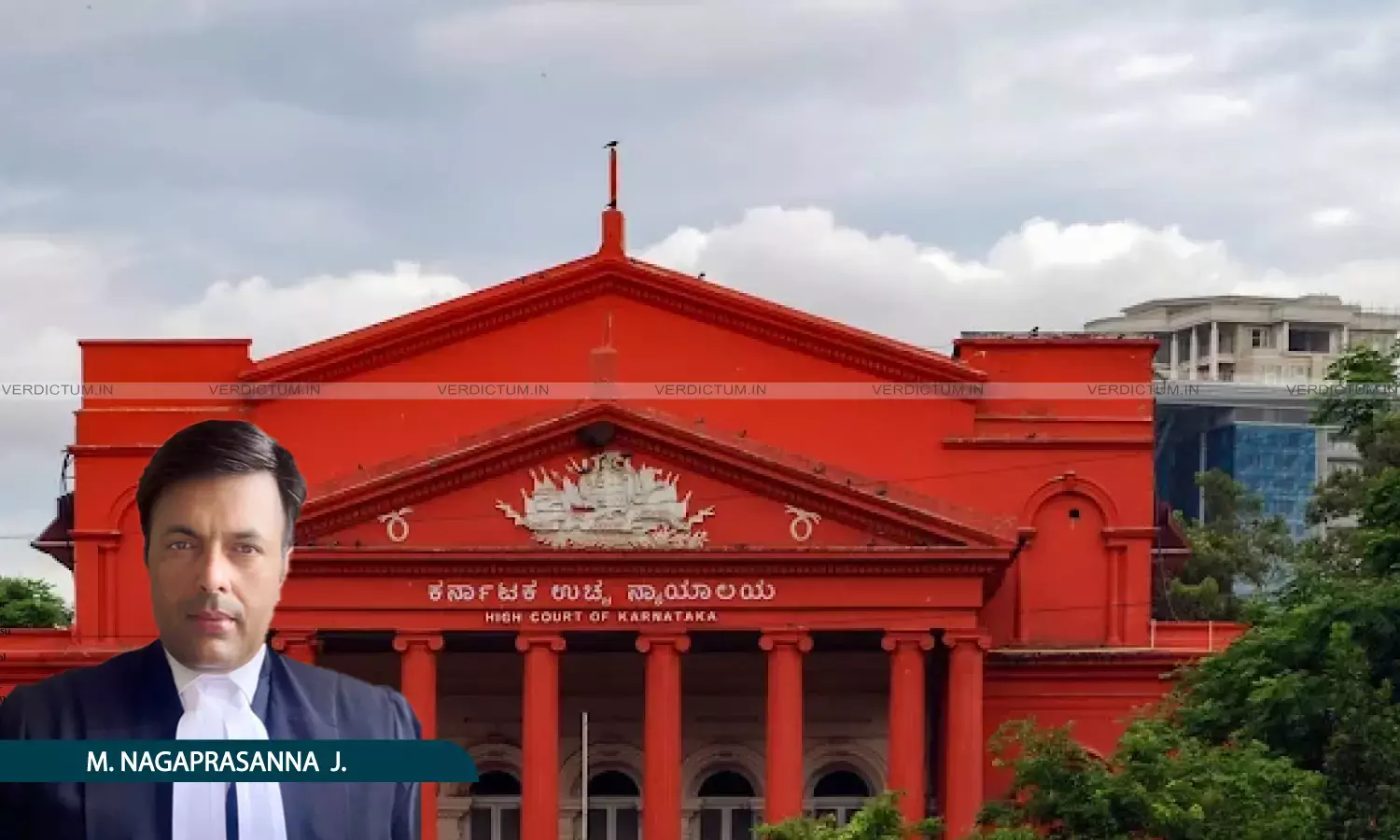Karnataka High Court Upholds NCBC’s Jurisdiction To Monitor Rehabilitation Of Backward Class Villagers Affected By Mining Operations
The High Court held that Article 338B of the Constitution entrusts the National Commission for Backward Classes with the duty to investigate, monitor and remedy grievances of backward classes, making their welfare a constitutional concern rather than a mere contractual issue.

Justice M. Nagaprasanna, Karnataka High Court
The Karnataka High Court dismissed a writ petition filed by Karnataka Power Corporation Limited (KPCL) challenging the notices issued by the National Commission for Backward Classes (NCBC), upholding the Commission’s jurisdiction to oversee the rehabilitation and resettlement of villagers displaced due to mining operations.
The Court was hearing a petition filed by KPCL, a Government of Karnataka undertaking, which questioned the notices issued by the NCBC requiring KPCL to comply with the terms of its agreement with the Government of Maharashtra concerning the rehabilitation of project-affected persons.
A Single Judge Bench comprising Justice M. Nagaprasanna, while upholding NCBC’s jurisdiction, observed: “This Court would undoubtedly hold that the Commission did have jurisdiction to entertain the representations, as it is empowered to do so under Article 338B of the Constitution. With the elevation of the Commission to a Constitutional status, the State cannot now hinge upon the status that stood repealed, as the Commission is not a statutory body, but a Constitutional body.”
Advocate General K. Shashikiran Shetty appeared for the petitioner, while Additional Solicitor General of India K. Arvind Kamath represented the NCBC.
Background
KPCL had been allotted coal blocks in Maharashtra by the Ministry of Coal, Government of India, for its thermal power plants. As part of the allotment, KPCL entered an agreement with the Government of Maharashtra in 2015 to provide rehabilitation and resettlement packages under the Maharashtra Project Affected Persons Rehabilitation Act, 1999, and the National Rehabilitation and Resettlement Policy, 2007.
The agreement required KPCL to provide civic amenities and allocate ₹25 lakhs annually (subject to a 10% yearly increase) for the affected areas. Additionally, KPCL was required to return 50% of the acquired land after mine closure or provide ₹4 lakhs per acre as compensation if the land could not be returned.
Despite these provisions, several representations were made to the NCBC highlighting non-implementation, non-payment to workers and contractors, and instances of extreme distress, including the suicide of affected individuals.
KPCL argued before the Court that the NCBC lacked jurisdiction to issue summons or enforce compliance with contractual agreements, which were governed by statutory rehabilitation frameworks.
Court’s Observations
The Karnataka High Court undertook a detailed analysis of the constitutional status of the NCBC post the 102nd Constitutional Amendment, which introduced Article 338B. Justice Nagaprasanna noted that the amendment elevated the NCBC from a statutory to a constitutional body, granting it wide-ranging powers to safeguard the interests of backward classes.
Emphasising the welfare mandate of the Commission, the Court remarked: “It is, therefore, the Commission, in the considered view of the Court, is duty bound to see welfare of the backward classes. It is not only the agreement that calls for interpretation here, but it is the lives of backward classes.”
Rejecting KPCL’s contention, the Court held that the present case was not about individual grievances but the “collective cry of scores of displaced villagers, their lives eclipsed by mining operations.”
Further, the Bench underscored the constitutional responsibility of the Commission, stating: “The Constitution is not an arid parchment; it is a living testament to justice, equity and welfare of the marginalized. Article 338B, by its luminous mandate, entrusts the Commission with a duty to investigate, monitor and remedy, grievances of the backward classes.”
Conclusion
The Court dismissed the writ petition and upheld the NCBC’s jurisdiction to monitor and seek compliance with the rehabilitation and resettlement of backward class villagers affected by mining operations in Chandrapur.
“The villagers who have parted with their lands are entitled to Constitution’s compassion. Their plight is not a contractual inconvenience, but a Constitutional concern,” the Court concluded.
Cause Title: Karnataka Power Corporation Limited Vs National Commission For Backward Classes
Appearances
Petitioner: Advocate General K. Shashikiran Shetty with Advocate Yashodhar Hegde
Respondent: Additional Solicitor General of India K. Arvind Kamath with Advocate M.N. Kumar
Click here to read/download Judgment

